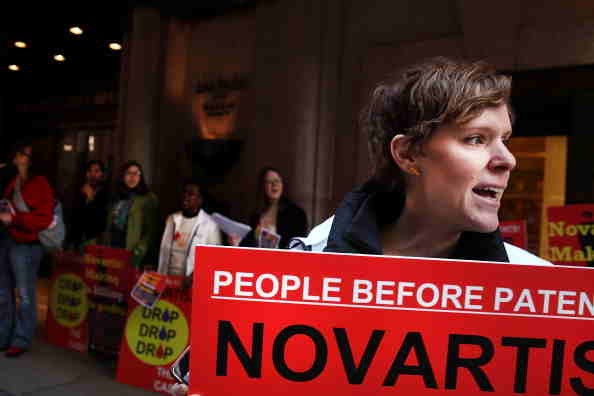
Access to cheaper medicines which can prevent blindness is being blocked by pharmaceutical companies, a British Medical Journal investigation claimed.
A drug firm is now being subject to criticism after reports revealed that drug manufacturers are accused of attempting to derail trials that could show promise for a less expensive drug that could treat age-related macular degeneration (AMD), the most common cause of blindness.
AMD is an irreversible destruction of the macula and now considered the leading cause of blindness or vision loss in Americans as reported by Bright Focus. Accordingly, more than 11 million people are suffering from AMD-like symptoms.
In Britain, around 250,000 people are affected by AMD. The said cheap drug would just cause around £65 a dose and will work just the same with current treatments which cost ten times as much, as reported by BBC News.
The BMJ revealed that drug firms are acting on a campaign to disrupt current research into the cancer drug, Avastin. Novartis, the drug firm in question, denies the allegations. They were accused of trying to block access to what some doctors believe is a cheap, safe and effective drug to treat common eye conditions, Telegraph reports.
Novartis is the manufacturer of the licensed medicine for AMD, Lucentis, which costs around £740 per dose. This was approved and licensed by federal officials while Avastin, is still being used in trial studies to prove its safety and efficacy.
AMD.org says that trials to prove which drug is better in treating AMD have already been carried out. The results have shown that both are equally effective in treating AMD. Avastin, a cancer drug, has already been present before Lucentis was manufactured. Some doctors used it exclusively to their patients and recommend it because aside from being proven safe, it is way cheaper than the approved and licensed Lucentis.
Though both drugs are owned by the same company, Roche, Lucentis is marketed in the United Kingdom by Novartis. Dr. Fiona Godlee, BMJ editor-in-chief said pharmaceutical companies should not hinder or block access to cheaper alternative drugs. She also reiterated that doctors should challenge the current system.
"Doctors and academics have carried out clinical trials despite threats and intimidation - and doctors leaders should follow suit and not allow themselves to be bullied either," she said.
However, Novartis released a statement that denies the allegations as reported by Telegraph, "Novartis is committed to high standards of ethical business conduct. Novartis does not tolerate unethical behaviour by its associates in any country, and has a comprehensive compliance program in place to help ensure that our associates comply with the Company's Code of Conduct and all applicable laws."
"Novartis strongly believes that patients have the right to the highest standard of care and that this right should be defended to promote safety and quality as the key drivers of health policy," the spokesperson added.
